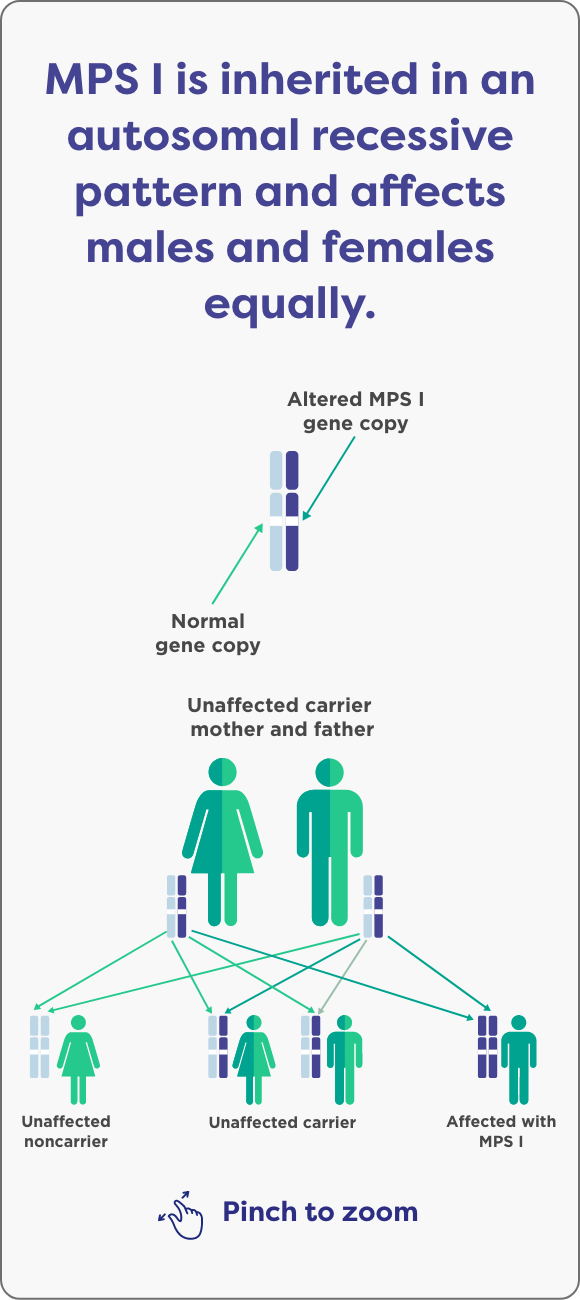INHERITANCE OF MPS I
MPS I is a genetic condition caused by disease-causing changes in the IDUA gene, which leads to deficiency of the IDUA enzyme.

MPS I is a genetic condition. This means MPS I can be passed down through families. People may get it when both parents have changes in the IDUA gene.
Can MPS I affect other family members?

chance of being affected

chance of being an unaffected carrier, like each parent

chance of being unaffected and not a carrier of the altered IDUA gene at all
So, that means that if both parents are carriers of MPS I, there is a 1 in 4 or 25% chance for each of their children to inherit the condition.
For each pregnancy, the chances of a baby inheriting MPS I are completely independent of whether a previous child was affected by MPS I.
MPS I is caused by disease-causing changes in the IDUA gene and is inherited in an autosomal recessive pattern. People with 2 copies of the altered IDUA gene would have MPS I. People with only one copy of the altered IDUA gene do not have MPS I; they are called carriers, and they can pass that altered gene to their children. MPS I affects males and females equally. If both parents carry one copy of the altered gene (which means they both are carriers), each of their children has a:
How MPS I is passed on from parents to children
.png)
People in families who have MPS I consider being tested
Since MPS I is genetic, when you or someone in your family has MPS I, it is important that other family members learn about this so they may get tested for MPS I. A genetic counselor is someone who can help you find out if any other member of the family should test for MPS I.
IDUA, α-L-iduronidase; MPS I, mucopolysaccharidosis type I.